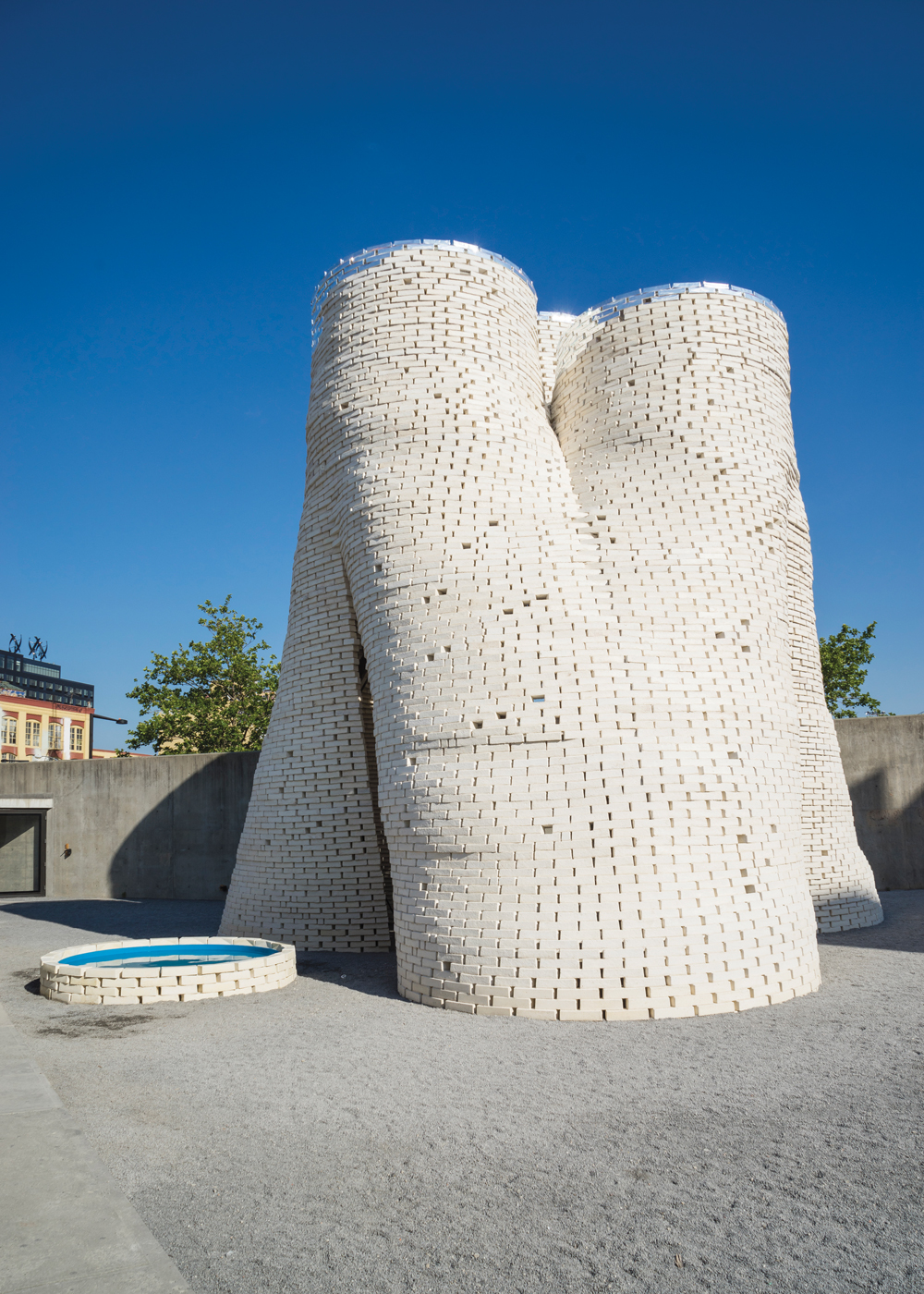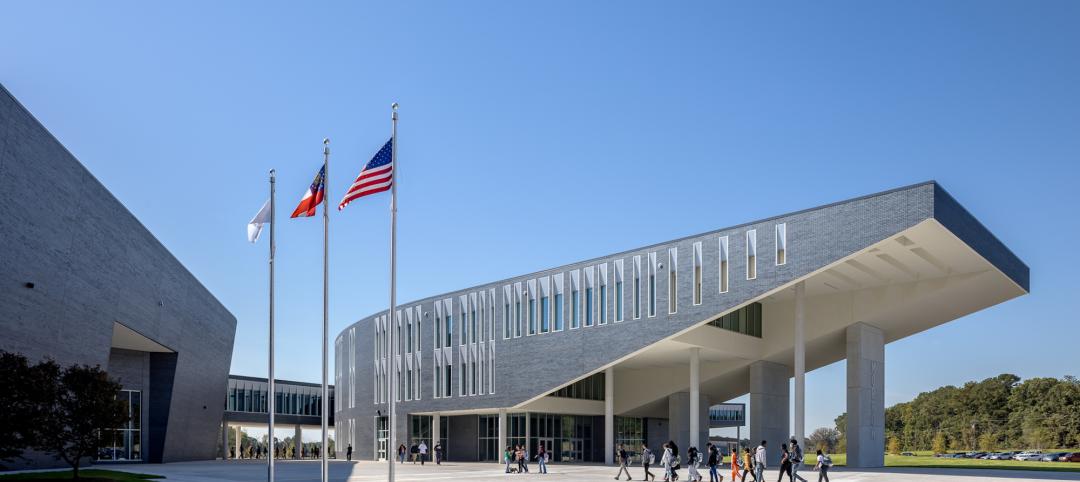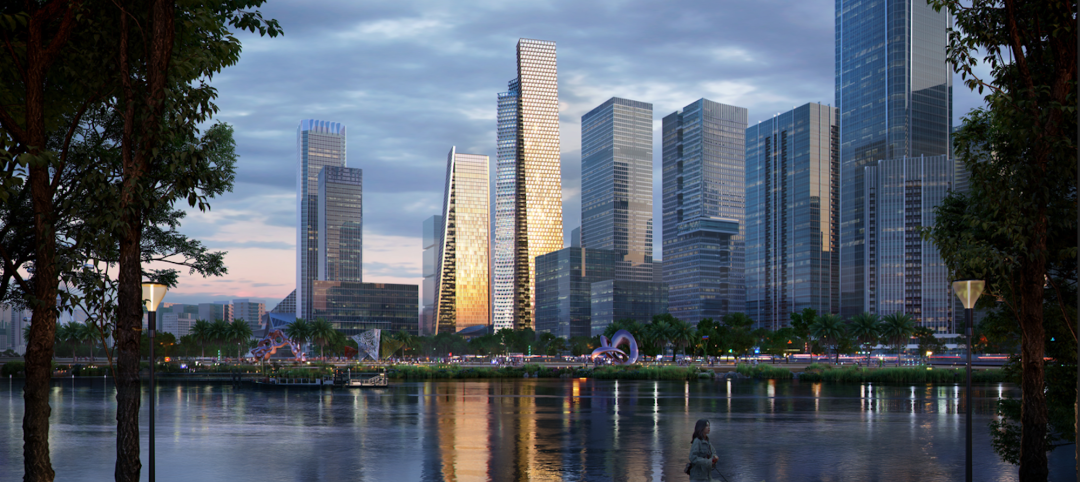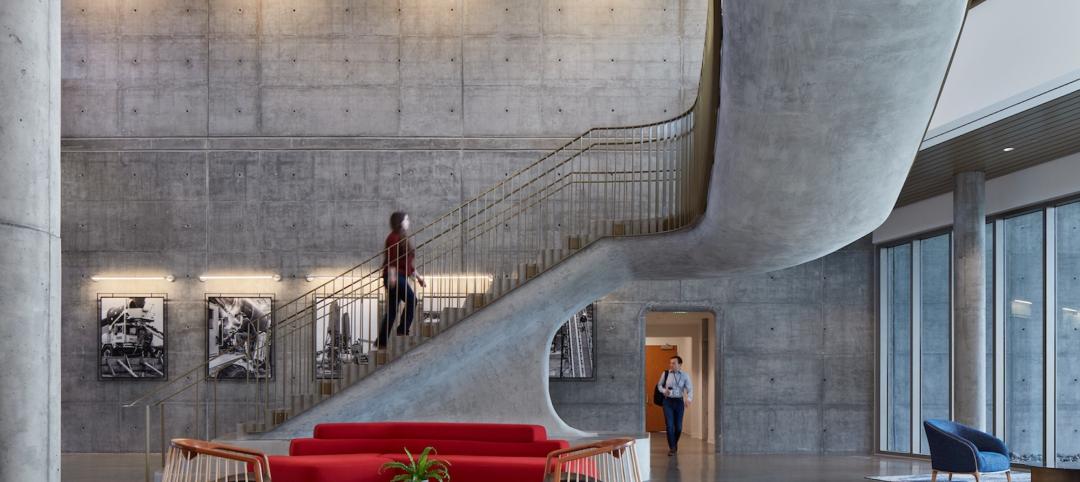Since its launch in 2007, New York-based Ecovative Design has garnered a lot of attention for creating building and packaging materials with low-carbon footprints by mixing agricultural waste with mushroom-derived mycelium. Instead of ending up in landfills, these materials can be composted and reused as soil nutrient.
Last summer, Ecovative Design applied its cradle-to-cradle process to produce 10,000 organic bricks that were used to build Hy-Fi, a three-tower structure that was installed in the courtyard of the Museum of Modern Art’s PS1 site in Long Island City, N.Y. Ecovative was assisted by architect David Benjamin of The Living design studio (acquired by Autodesk in July), structural engineer Arup, environmental engineer Atelier Ten, and SCAPE Landscape Architecture.
Sam Harrington, Ecovative’s Building Products Manager, says the bricks were made by combining chopped corn stalks with specially formulated mycelium. The mixture was packed into molds—which can be of any shape—where it self-assembled and solidified into a lightweight, low-cost object. The molds, made from reflective plastic supplied by 3M, were used (with bricks inside them) to accent the tops of the towers. The towers were demolished in September, and the bricks were composted.
Harrington says the lifespan of these organic materials, which Ecovative has dubbed “Myco Foam,” is similar to that of softwood. “If untreated Myco Foam (in the shape of a brick, or anything else) is kept dry and clean within a building assembly, it will last indefinitely. If it’s chipped into small bits, and mixed with moisture and active soil biota, it will compost in a few months.”
Harrington says Ecovative Design’s primary focus is to use ag waste to make rigid-board insulation.
Read about more innovations from BD+C's 2014 Great Solutions Report
Related Stories
K-12 Schools | Feb 18, 2023
Atlanta suburb opens $85 million serpentine-shaped high school designed by Perkins&Will
In Ellenwood, Ga., a southeast suburb of Atlanta, Perkins and Will has partnered with Clayton County Public Schools and MEJA Construction to create a $85 million secondary school. Morrow High School, which opened in fall 2022, serves more than 2,200 students in Clayton County, a community with students from over 30 countries.
Museums | Feb 17, 2023
First Americans Museum uses design metaphors of natural elements to honor native worldview
First Americans Museum (FAM) in Oklahoma City honors the 39 tribes in Oklahoma today, reflecting their history through design metaphors of nature’s elements of earth, wind, water, and fire. The design concept includes multiple circles suggested by arcs, reflecting the native tradition of a circular worldview that encompasses the cycle of life, the seasons, and the rotation of the earth.
Architects | Feb 17, 2023
Architect of the Capitol fired by President Biden after strong bipartisan criticism
Architect of the Capitol J. Brett Blanton was let go this week following alleged abuse of authority, misuse of government property, and wasted taxpayer money.
High-rise Construction | Feb 15, 2023
Bjarke Ingels' 'leaning towers' concept wins Qianhai Prisma Towers design competition
A pair of sloped high-rises—a 300-meter residential tower and a 250-meter office tower—highlight the Qianhai Prisma Towers development in Qianhai, Shenzhen, China. BIG recently won the design competition for the project.
Senior Living Design | Feb 15, 2023
Passive House affordable senior housing project opens in Boston
Work on Phase Three C of The Anne M. Lynch Homes at Old Colony, a 55-apartment midrise building in Boston that stands out for its use of Passive House design principles, was recently completed. Designed by The Architectural Team (TAT), the four-story structure was informed throughout by Passive House principles and standards.
Designers | Feb 13, 2023
Hoffmann Architects + Engineers Establishes Diversity Advancement Scholarship Fund
Hoffmann Architects + Engineers, a design firm specializing in the rehabilitation of building exteriors, contributed $25,000 to fund the Hoffmann Diversity Advancement Scholarship, administered through the Connecticut Architecture Foundation. The fund provides scholarships for students from underrepresented racial or ethnic groups who are seeking degrees in architecture or engineering.
Office Buildings | Feb 12, 2023
Smyrna Ready Mix’s new office HQ mimics the patterns in the company’s onsite stone quarry
Designed by EOA Architects to showcase various concrete processes and applications, Smyrna Ready Mix's new office headquarters features vertical layering that mimics the patterns in the company’s stone quarry, located on the opposite end of the campus site. The building’s glass and concrete bands are meant to mirror the quarry’s natural contours and striations.
Multifamily Housing | Feb 11, 2023
8 Gold and Platinum multifamily projects from the NAHB's BALA Awards
This year's top BALA multifamily winners showcase leading design trends, judged by eight industry professionals from across the country.
Multifamily Housing | Feb 10, 2023
Dallas to get a 19-story, 351-unit residential high-rise
In Dallas, work has begun on a new multifamily high-rise called The Oliver. The 19-story, 351-unit apartment building will be located within The Central, a 27-acre mixed-use development near the Knox/Henderson neighborhood north of downtown Dallas.
Sustainability | Feb 9, 2023
New guide for planning, designing, and operating onsite water reuse systems
The Pacific Institute, a global nonpartisan water think tank, has released guidance for developers to plan, design, and operate onsite water reuse systems. The Guide for Developing Onsite Water Systems to Support Regional Water Resilience advances circular, localized approaches to managing water that reduce a site’s water footprint, improve its resilience to water shortage or other disruptions, and provide benefits for local communities and regional water systems.

















